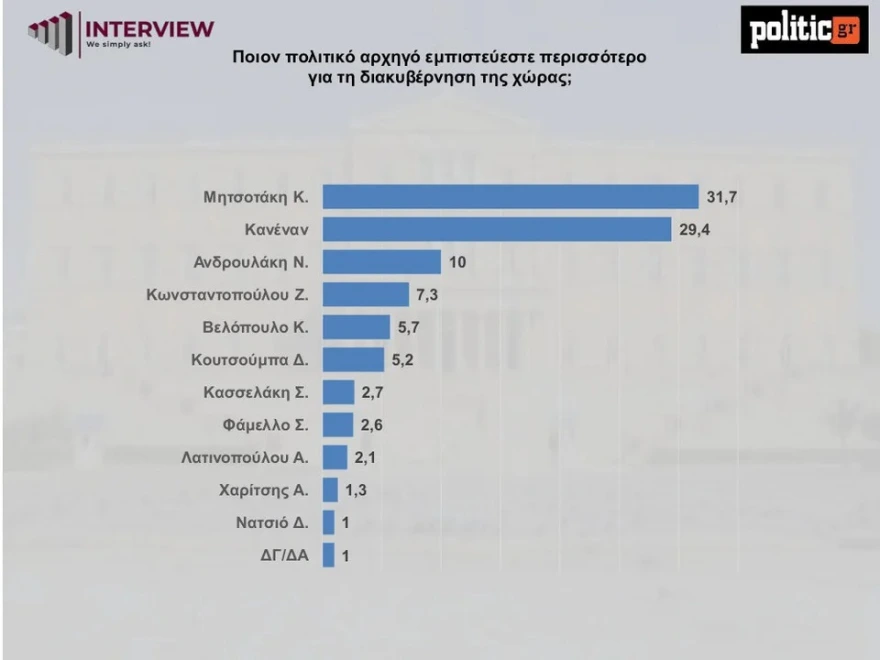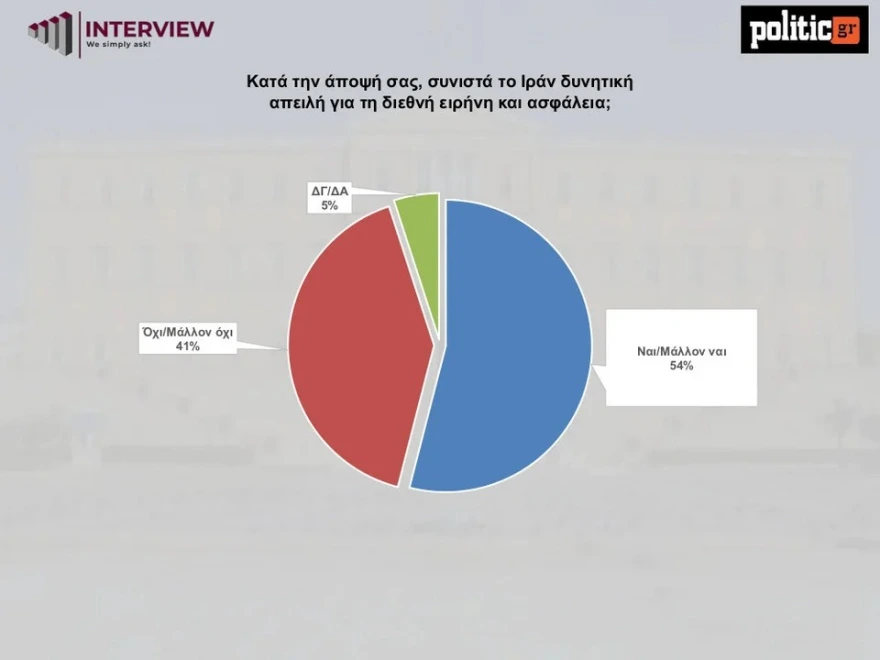According to a new poll by Interview for Politic, the Greek political scene is experiencing a significant transformation, with SYRIZA dropping to just 2.9% in voting intention and falling below the parliamentary threshold for the first time in recent history. In contrast, New Democracy (ND) retains a strong lead at 31.3%, while PASOK – Movement for Change (KINAL) remains in second place with 14.5%. Notably, the emerging party Plefsi Eleftherias has gained momentum, coming in third with 10.3%, indicating a shift in the centrist and liberal voter base.
The detailed voting intention reveals a divided electorate: ND stands at 25.9%, PASOK at 12%, and Plefsi Eleftherias at 8.5%. Smaller parties like Elliniki Lysi and KKE have moderate support at 7.0% and 6.5%, respectively. SYRIZA’s decline to 2.9% signifies one of its most critical setbacks in years, as it falls below the necessary 3% threshold for parliamentary representation. The increase in undecided voters, now at 16.7%, underscores the prevailing uncertainty ahead of the upcoming elections.

From a political perspective, SYRIZA’s near-exclusion from parliament indicates a serious crisis for the left-wing opposition, likely due to voter fragmentation and discontent. Meanwhile, New Democracy’s robust performance reinforces its status as Greece’s leading political force, while PASOK seeks to strengthen its position as the primary opposition amidst the left’s turmoil. The ascent of Plefsi Eleftherias highlights the electorate’s demand for new centrist and liberal alternatives, adding complexity to the political landscape. The continued support for smaller parties like Elliniki Lysi and KKE demonstrates ongoing divisions among nationalist and communist voters.
Trust ratings for leadership further emphasize ND’s dominance, with Prime Minister Kyriakos Mitsotakis enjoying a trust rating of 31.7%, a slight increase from May. The nearly 30% of respondents expressing no trust in any leader reflects broad political disillusionment. PASOK leader Nikos Androulakis has seen modest gains at 10%, while Zoe Konstantopoulou maintains support around 7.3%.

On the foreign policy front, Greeks favor a balanced approach to the complex Greek-Turkish relations, advocating for both improved military deterrence and diplomatic dialogues without sacrificing national rights. Half of the respondents support enhancing deterrence, while 36% favor a hardline position that rejects any concessions. Regarding Iran, opinions are mixed, with 54% perceiving it as a threat to global peace, and 41% disagreeing, indicating a divided public sentiment.
When evaluating foreign leaders, Cypriot President Nikos Christodoulides receives the highest approval rating among Greeks at 43.4%, followed by French President Emmanuel Macron at 39% and Russian President Vladimir Putin at 32%. Conversely, leaders associated with conflict, such as Donald Trump, Volodymyr Zelensky, and Benjamin Netanyahu, receive largely negative evaluations, reflecting the public’s preference for stability and European cooperation.

In conclusion, this poll illustrates a transformed Greek political landscape: SYRIZA’s decline creates a gap on the left, ND reinforces its authority, PASOK emerges as the leading opposition, and new centrist forces gain traction. Public sentiment on foreign issues reflects pragmatism and caution, while distrust toward political leaders remains prevalent. The upcoming months will be crucial as parties adapt to this dynamic and shifting electoral environment.
Ask me anything
Explore related questions
















